- About
About
Read about our values and the heart of Altitude in our About Altitude page or why not learn more about us in our team page? Our Verbier page has everything you need to know about the resort and what to do nearby.- Camps
Our Camps
We offer residential camps for 7-14 year olds as well as day camps for 3-14 year olds. For families, we offer accommodation options as well as bespoke family holiday itineraries.- Residential Camps
- Day Camps
- Activities & Excursions
- Family Adventures
- Accommodation
Accommodation
Our camps foster a home away from home feeling for children with everything they need for a safe and comfortable stay. For families, we have suitable properties for all requirements.Life Skills and Experiences at Camp
More Than Just Outdoor Activities and Adventures
Summer is a season of sunshine, adventure, and personal growth, and at Altitude Summer Camps, we believe in making every moment count. The benefits of our summer camp in Verbier offer more than just thrilling activities and outdoor exploration; they provide a unique opportunity for children to develop essential life skills and experiences at summer camp that will stay with them long after the summer ends. From building confidence and social skills to gaining independence and new skills we explore the educational and personal development aspects of attending Altitude Summer Camps.Building Confidence Through Adventure
One of the most transformative aspects of summer camp is the boost in self-confidence it offers young campers. Engaging in a range of challenging activities like hiking, rock climbing, or team-building exercises fosters a sense of accomplishment. When campers overcome obstacles and achieve their goals, they gain confidence in their abilities, empowering them to face challenges with courage and determination.
Embracing Independence
Summer camp is often a child’s first experience away from home, and it encourages them to become more independent. Campers learn to make decisions, manage their time, and adapt to new environments, all of which are valuable life skills that will serve them well in the future. At Altitude Summer Camps, we provide a safe and nurturing environment where children can gradually build their independence, under the guidance of experienced counsellors.Making Friends and Building Social Skills
Camp offers a unique social environment where children from diverse backgrounds come together. They learn to collaborate, communicate, and make friends outside their usual social circles. These friendships are often some of the most enduring and cherished of a camper’s life. The friendships formed at Altitude Summer Camps are a testament to the power of shared experiences and a supportive, inclusive community.
Exploring New Interests and Gaining New Skills
Summer camp is an ideal time for children to explore new interests and develop new skills. Whether it’s discovering a passion for nature, honing their artistic talents, or improving their teamwork and leadership abilities, Altitude Summer Camps offer a diverse range of programs to cater to these desires. Campers return home with new skills, hobbies, and a broader perspective on their own capabilities.
Creating Lasting Memories
The experiences and memories created at summer camp stay with children for a lifetime. Whether it’s the thrill of conquering a climbing wall, the joy of a campfire sing-along, or the sense of belonging to a close-knit camp community, these memories become a cherished part of a child’s personal history. At Altitude Summer Camps, we’re committed to providing a safe and enriching environment for your child to discover their potential, make lifelong friends, and build skills that will serve them well in life. Our campers leave with more than just memories; they leave with newfound confidence, independence, and a network of friends who will support them on their journey. Join us this summer and give your child the gift of personal and educational growth at Altitude Summer Camps.At Altitude, we take food seriously! Our campers need to be fuelled throughout the day to enjoy all their activities, so we make sure our summer camp menu is healthy, nutritious, fresh and best of all tasty, every day.
Three meals a day are prepared by our on-site chefs, who make sure they adhere to all dietary requirements of any campers for the week. There is always a meat and vegetarian option as well.
To give you an idea of the food you will get at camp, we have included an example summer camp menu below. Remember this changes from week to week, so that campers are always trying new foods that they love!
Breakfast Bar:
Our residential campers have breakfast each day at 08.00 before activities begin at 09.00. We have a ‘breakfast bar’ where children can choose from the following:
Fresh fruit platter
Croissants
Toast / bread
Nutella, jams, butter
Selection of cereals
Eggs
Cheese & Meat platter
Yoghurt
Fruit Juice, Milk, Tea
Lunch Buffet
All day campers, including those on our half-day Marmot camp, enjoy a buffet style lunch each day from 12h00. This includes a build-your-own salad bar, breads, cheese and meats each day, as well as a hot option which changes each day. Wednesdays and Saturdays are excursion days so sandwiches, crisps and fruit are taken for a lunchtime picnic.
Salad Bar (served every day)
Mixed Leaves , Tomato, Cucumber, Sweetcorn, Red Onion, Carrot, Beetroot, Cheese
Mixed salad of the day
Salad Dressing
Meat Platter
Bread
Lunch hot options:
Monday:
Jacket Potatoes
with Home Made Baked Beans, Cheese, Tuna Mayo, & Black Bean Chili
Tuesday:
Chicken and Vegetable Stir Fry
Vegetable Stir Fry
Wednesday:
Packed Lunch:
Camper’s Choice of Sandwich (Ham, Cheese, Ham & Cheese, Tuna, Egg Mayo)
Crisps
Piece of Fruit
Thursday:
Bacon Macaroni Cheese or Plain Macaroni Cheese
Peas & carrots
Friday
Beef Lasagna / Aubergine Parmigiana
Garlic Bread
Saturday
Packed Lunch:
Camper’s Choice of Sandwich (Ham, Cheese, ham & cheese, tuna, egg mayo)
Crisps
Piece of Fruit
Chalet Dinners
Dinner is served in each chalet at 18.30 and consists of a main course and dessert each day, which campers eat together with their fellow chalet-mates and evening staff. Check out our sample menu below.
Sunday
Beef Chilli with rice and nachos
Dessert:
White chocolate and raspberry cheesecake
Monday
Chicken Fajitas with vegetables, sour cream and guacamole
Dessert:
Roast peaches with vanilla ice cream
Tuesday
Sausages, mash and onion gravy with peas and carrots
Dessert:
Apple Crumble & Ice Cream
Wednesday
Beef stew with mashed potatoes, peas and carrots
Dessert:
Lemon drizzle cake
Thursday
Salmon Fish Cakes or Sweet Potato and Tofu Cakes, Steamed Rice, Greens.
Dessert:
Chocolate mousse
Friday
Homemade chicken goujons with chunky potato wedges, green beans and broccoli
Dessert:
Sticky toffee pudding and ice cream
Saturday
Make your own pizza with garlic bread and salad
Dessert:
Chocolate Brownies, Vanilla Ice Cream.
To find out more about what we offer in summer check out our Residential Camps or our Day Camps.Healthy snacks to make with kids
In a previous blog we explored many ways of encouraging healthy eating in your children, and involving children in the food preparation process as well as having kid-friendly healthy snacks on hand can be an important way of discouraging binging on biscuits, sweets or crisps when hungry. Whether it’s just as an after-school snack, or for an upcoming kids party, here are a few of our favourite healthy snack recipes for making with your kids!Octopus Houmous
Kids eat with their eyes just like we do, so this fun and healthy dip can be a great way to get some veg into your kids with no complaints! You will need: one bell pepper, houmous (shop bought or home-made) and one olive!- Take a bell pepper (any colour you like as octopuses come in all shapes and sizes!) and cut off the top 1/3 of the pepper. De-seed the bottom 2/3rds and put to one side.
- Chop the top of the pepper into strips to make the ‘tentacles’!
- Spread houmous – shop bought or home-made – into a shallow bowl.
- Place the bottom half of the pepper in the houmous to make the body of the octopus, and use 8 of the pepper strips around the outside to form the tentacles.
- Chop the olive into round slices and stick two to the pepper with a little houmous to make the eyes! Kids love doing this bit too.
Avocado Boat
Another way to make a heathy food appeal to your kids! You will need: tortilla chips, one avocado, a wooden skewer and small piece of paper, half a lemon, and some sour cream.- Half the avocado and take out the stone. Spoon out the avocado from the skin and put in a bowl with a dollop of sour cream, and squeeze in some lemon juice.
- Mash the avocado, sour cream and lemon juice together to form the dip
- Use the skewer and piece of paper to make the sail for your boat. A great tip is to let your kids decorate this while you are busy making the dip!
- Surround with a ‘sea’ of tortilla chips, and a lego pirate or two if you have any handy!
Cucumber Sandwiches
A super quick one, and a great way of getting more veg into your kids! This idea uses cucumbers as the ‘bread’ of mini sandwiches, and are fun for kids to assemble however they want them too! You will need: a cucumber, fillings of choice: eg. slices of cheese, soft cheese, ham, slices of tomatoes
You will need: a cucumber, fillings of choice: eg. slices of cheese, soft cheese, ham, slices of tomatoes
- Slice cucumber into slices a few mm thick.
- Use a cookie cutter, or just a knife if you don’t have one to hand, to make slices of the fillings such as cheese and ham a similar size to the cucumber. If you’re feeling brave you could use tuna mayo!
- Assemble your sandwiches! Soft cheese is a great way to make the layers stick together too.
So, what are the facts?
In a recent article, The Guardian published that on average, three-quarters of UK children are now spending less than an hour playing outdoors each day, based on an independent study by Persil’s ‘Dirt is Good’ campaign. The UK is not alone in this however, with other countries across the world showing similar trends, and studies in the USA also releasing figures that their children are now spending an average of 7 hours 40 minutes ‘screentime’ per day. The UK Government have expressed their ambitions ‘for every child to be able to experience and learn in the natural environment’. As part of research toward accomplishing this target, a 2-year pilot study released in 2016 found 12% of children in England had not visited a natural environment over the last year, and far less visit more than once a week. Only 8% of children visited with their school, and 22% visited without adult supervision. These results indicate that the responsibility now lies with parents to make sure they are getting their kids outdoors, indicating a generational shift from 30 years ago when children used to play outside with friends, exploring parks, woodlands or the countryside with little or no adult supervision. The result of this increasing disconnect from outdoor environments has lead to a disconnect from nature itself. In 2013, the RSPB published a three-year study, which concluded that 80% of children are not adequately connected to nature. Whether children were living in urban or rural environments seemed to have little impact on the figures, and in fact children in London were more connected to nature than those living in Wales.
Should we be concerned?
So, why are the government and other organisations so worried about children spending less time outdoors? The reality is that nature is seen to have such great advantages to overall health and well-being, that the term ‘nature defecit disorder’ has actually been coined by Richard Louv in his book ‘The Last Child in the Woods’, a book which outlines some of the major benefits for children to have a strong connection with nature. It has been established that spending time in natural environments is something required not only for a child’s mental health and wellbeing, but also their physical and physiological development, and deprivation of these environments is causing development issues in the younger generation.“Teaching children about the natural world should be seen as one of the most important events in their lives” – Thomas Berry
We took a look at the findings of the latest research into the benefits of nature, to see why nature really is so important to children in more ways than one:Nature contributes to the development of children’s sensory systems
From the tactile experience of squelching through mud to developing spatial awareness from hearing birdsong in the trees around them, nature leads to the development of children’s sensory systems, and the development of their core strength, coordination and balance. In fact, nature is so important to this aspect of development that deprivation of exposure to natural environments can actually cause sensory development issues, such as a decreased tolerance to touch, noise, and temperature.
Time spent in natural environments can help prevent behavioural issues in children
It has been shown that restricted movement throughout the day, and not enough active play leads to poor development of the middle ear complex, which leads to these balance problems and reduces the brains ability to use the ears and eyes efficiently. As a result, children will find it near impossible to learn, and to concentrate for periods of time. It is even believed that this may be leading to the increase in ADHD amongst children, and that literally prescribing time to be spent outdoors in natural environments could be a solution to treating the condition drug-free.Nature stimulates intellectual development and a love and empathy with the natural world
Introducing children to nature at a young age leads to a greater understanding and responsibility for the natural world. Stephen R. Kellert, School of Forestry and environmental studies at Yale University has stated that ages 6-12 is a time when children are most likely to be interested in and understand the natural world. “Intellectual development at this stage is especially facilitated by direct contact with nearby natural settings, where a world of exploration, imagination and discovery becomes increasingly evident to the child”. In a world where climate change, environmental disasters, widespread habitat destruction and what could be the 6th major extinction event the planet has ever seen threaten our planet as we know it, instilling a love and connection to nature in our children could be the most important gift we give to their generation to enable them to protect our earth and their future.Activities outdoors lead to the improvements of key skills such as confidence and decision making
A meta-analysis of data from 96 studies has shown that children who spend time taking part in outdoor adventure programmes also show significant improvements in independence, confidence, self-efficacy, self-understanding, assertiveness, internal locus of control and decision making as a result.Natural environments teach risk management
Nature provides a playground in which children can be active, explore and learn. Letting children experience more risky activities outdoors, such as adventurous play equipment or something as simple as climbing a tree, has been shown to be important to the development of risk management for a child, helping them manage their own decision making processes and learn about risk and reward as well as teaching perseverance and resilience.Your child and nature
The combination of modern day technology, an increased social pressure for parental supervision and extra-curricular activities, and with children in school for approximately 8 hours a day, there is now a responsibility for parents to ensure that nature is something they incorporate into their children’s childhood. After school is a great time to be able to make use of local rural environments and parks, and the school holidays is a great time for children to experience nature may be further away from their homes.Summer camps can help grow your children’s love for nature
Summer camps can provide the perfect experience for children to explore outdoors, with supervision by staff who are both trained and responsible for your child’s wellbeing but also don’t represent parental figures, so children have more independence and an opportunity to explore themselves. When choosing a summer camp programme for your child, we would recommend finding a programme that provides a significant amount of outdoor activities each day. If you opt for an academic-based programme, make sure that either the mornings or afternoons are dedicated to sports, excursions, or other forms of outdoor exercise. Alternatively, outdoor-based learning and adventure programmes are perfect for helping children and teenagers to learn new skills, stay active and learn an appreciation and connection with their natural environment. A camp set in a safe, rural environment is an ideal option to ensure children experience the outdoors even when taking parts in sports and other activities, and gives young children the freedom to explore and play in an outdoor environment which may not be possible at home. Unstructured play is also often a very important component that is often overlooked. Children need ideally at least an hour if not more of unstructured play each day in order to practice social and play skills, use their imagination and challenge their bodies. This is usually represented by ‘free time’ at camp, so make sure that you don’t overlook the importance of this time when looking at a camp programme. References and further reading http://www.theguardian.com/environment/2016/mar/25/three-quarters-of-uk-children-spend-less-time-outdoors-than-prison-inmates-survey https://www.gov.uk/government/uploads/system/uploads/attachment_data/file/498944/mene-childrens-report-years-1-2.pdf http://www.huffingtonpost.com/ben-klasky/our-children-deserve-as-m_b_4791244.html https://www.rspb.org.uk/Images/connecting-with-nature_tcm9-354603.pdf http://www.childrenandnature.org/2016/04/11/release-of-vitamin-n-the-essential-guide-to-a-nature-rich-life/ http://www.englishoutdoorcouncil.org/wp-content/uploads/Change.pdf http://www.growinghandsonkids.com/vestibular-system-affects-childs-behavior.html http://www.ourkids.net/kids-need-nature.php Diet has truly infiltrated the psyche of the nation. In today’s world we are more concerned than ever with what we are eating; awareness of obesity is rising and campaigns to educate the general public on healthy food are everywhere. And it’s not just ourselves we’re concerned about, we also want our children eating healthy. The media is filled with advice on what is considered the latest super food, what may be harming our health and what we should be avoiding. So with our awareness growing, we can’t help but worry about our children’s diets; notoriously fussy and with endless cravings for sweet foods, kids can be the fussiest customers, but their nutrition is even more important as they are growing and developing. Here are some of the best current tips on how to encourage healthy eating habits and a positive attitude to food in children from an early age. Get kids involved in growing their own food!
If children have been involved in the planting and growing process, they are much more likely to want to eat their fruits and vegetables! Growing food yourself also means you can guarantee it is organic with no pesticides, and teaches children where different foods come from. Understanding food also helps children make healthier choices as they grow older and are able to choose their own meals at school and beyond.
Involve children in the food preparation process
We lead busy lives and many parents wont be a fan of this suggestion, but involving children in food preparation will mean they are far more likely to eat and enjoy their food as they are proud of what they have made. Letting them help in the supermarket shops and learn to read food labels also increases their awareness.
Get kids involved in growing their own food!
If children have been involved in the planting and growing process, they are much more likely to want to eat their fruits and vegetables! Growing food yourself also means you can guarantee it is organic with no pesticides, and teaches children where different foods come from. Understanding food also helps children make healthier choices as they grow older and are able to choose their own meals at school and beyond.
Involve children in the food preparation process
We lead busy lives and many parents wont be a fan of this suggestion, but involving children in food preparation will mean they are far more likely to eat and enjoy their food as they are proud of what they have made. Letting them help in the supermarket shops and learn to read food labels also increases their awareness.
 Eating together
Sitting down as a family can be important, even if schedules mean it cant happen every night. You are a role model for your child and eating healthy yourself will encourage them to do so and try more foods too. Importantly children should be at a table without electronic or other devices on, as it has been shown children are more likely to eat more unhealthy food in front of televisions.
Making food from scratch
The benefit of this is that you know exactly what is in your food; no excess sugar or salt can hide away, and chefs like Jamie Oliver are on a mission to prove that making food from scratch is easier than you think. Cooking in large batches when you have time can also make it easy to defrost a home-cooked meal on a busy night.
Eating together
Sitting down as a family can be important, even if schedules mean it cant happen every night. You are a role model for your child and eating healthy yourself will encourage them to do so and try more foods too. Importantly children should be at a table without electronic or other devices on, as it has been shown children are more likely to eat more unhealthy food in front of televisions.
Making food from scratch
The benefit of this is that you know exactly what is in your food; no excess sugar or salt can hide away, and chefs like Jamie Oliver are on a mission to prove that making food from scratch is easier than you think. Cooking in large batches when you have time can also make it easy to defrost a home-cooked meal on a busy night.
 Limit takeaways, fast food and sweets
Advertising and the normalisation of junk food is the target of the food revolution; takeaways near schools mean this is often a choice for older children on their way to or from school. As a special treat this can be fine; not banning these entirely reduces the impulse to binge when able to!
Sugary drinks
For kids this can be a killer, but many sugary drinks can be addictive, especially drinks like coke and kids will actually crave it. Even concentrated fruit juices contain sugar.
Remember portion sizes
Limit a child’s plate, and never insist they clean their plate if they are full. Using food as a reward or bribe is also strongly recommended against.
At camp we have in house chefs making sure all food is prepared each day from fresh ingredients, and using locally sourced produce wherever possible. We also launched our new cookery classes in 2018 which were a great success! The kids loved making their own meals and it was a great way to educate them about where food is sourced, how to safely prepare it, and of course, what makes it healthy!
Want to know about the food we offer at our summer camps? Make sure you check out our camp menu blog!
Limit takeaways, fast food and sweets
Advertising and the normalisation of junk food is the target of the food revolution; takeaways near schools mean this is often a choice for older children on their way to or from school. As a special treat this can be fine; not banning these entirely reduces the impulse to binge when able to!
Sugary drinks
For kids this can be a killer, but many sugary drinks can be addictive, especially drinks like coke and kids will actually crave it. Even concentrated fruit juices contain sugar.
Remember portion sizes
Limit a child’s plate, and never insist they clean their plate if they are full. Using food as a reward or bribe is also strongly recommended against.
At camp we have in house chefs making sure all food is prepared each day from fresh ingredients, and using locally sourced produce wherever possible. We also launched our new cookery classes in 2018 which were a great success! The kids loved making their own meals and it was a great way to educate them about where food is sourced, how to safely prepare it, and of course, what makes it healthy!
Want to know about the food we offer at our summer camps? Make sure you check out our camp menu blog!
Screen time and your child
The subject of screen time and its effect on your child(ren) has been making headlines over the last few years. Technology is developing so quickly that the role it plays in the lives of children and adolescents today is dramatically different to how it was just 20 years ago. The huge advancements in mobile technology has also increased the integration of technology into our lives; mobile devices are now carried everywhere all the time, and this has also started to impact the lives of our children in the same way as our own. The use of mobile devices in children aged 0-8 years has risen from 5 minutes of use a day in 2011, to 48 minutes a day in 2017, an increase of over 10 fold in just 6 years. Currently, experts are agreed that we are just not sure of the extent of the effects that this increased exposure may be having on long term development, but a handful of studies so far have shown some significant effects of screen time on child development, together with other worrying impacts as children get older. We take a look at the main effects of screen time, good and bad, that have made the news over recent years as we ask – how much is too much?
Types of screen-time
As adults, we know ourselves that ‘screen-time’ can consist of several different things; for example many of us use computers at work or for studying, we watch television, we use smartphones or other touch devices. This is similar to children; different types of exposure to screen have a different effect. Broadly, the categories are as follows as according to the Common Sense Census:- Passive consumption: watching TV, reading, and listening to music
- Interactive consumption: playing games and browsing the Internet
- Communication: video-chatting and using social media
- Content creation: using devices to make digital art or music
Screen time and development in young children
There are a number of different recommendations for how much screen time children should be exposed to, and the benefits and costs of using screens. Most parents believe screens have an educational value, but for very young children, research to date is showing otherwise. Infants and Toddlers Broadly speaking children under 18 months – 2 years old are recommended to have no screen time at all with the exception of video-chat assisted by an adult. Even when children are not actively using or watching screens, if the television is on in the background, this negatively affects their play and they are likely to be less focused and will play for less time, and also the quality of parent or caregivers interaction with the children is reduced as they themselves are distracted by their phones or television. This can impact and reduce their ability to learn through play and from caregivers.
Essentially, for young children they have nothing to gain and lots to lose from screens. Even educational TV shows aimed at young children have not shown any significant benefits, and a study of children from 8-16 months have shown the more TV a young child watches, the less words they know compared to others in their age group exposed to less TV.
Pre-school age children
For pre-schoolers aged 2-5, current guidelines exist that approximately 1 hour of screen-time should be the limit. However a 2017 study published in the journal Child Development, researchers looked at the impact of screen-time in relation to children’s overall wellbeing. Findings suggested that it was how parents incorporated the media into children’s lives, how they set rules and if they were actively engaged in exploring digital screens with children that had more of an impact than simply the amount of time.
The message from this is therefore that limits are good, but also using screens together with your child is the best way to help them get the maximum benefits of good quality programmes, games and apps, removing the negative impacts of increased screen-time.
Screen-time and Tweens and Teens
Unlike younger children, and especially with the increase in mobile devices, limiting use of screens in older children can be difficult for parents, and monitoring that use, especially in teens, is even more difficult.
Tweens (aged 8-12) are spending an average of 4.5 hours a day, and Teens (13-18) an average of 6.5 hours a day with ‘screen’ media, excluding homework and school-time.
The majority of the time (78% among tweens and 64% among teens) they are using is still ‘passive’ or ‘interactive consumption’ – watching, listening, reading and playing with media content such as TV, videos and gaming.
Broadly speaking children under 18 months – 2 years old are recommended to have no screen time at all with the exception of video-chat assisted by an adult. Even when children are not actively using or watching screens, if the television is on in the background, this negatively affects their play and they are likely to be less focused and will play for less time, and also the quality of parent or caregivers interaction with the children is reduced as they themselves are distracted by their phones or television. This can impact and reduce their ability to learn through play and from caregivers.
Essentially, for young children they have nothing to gain and lots to lose from screens. Even educational TV shows aimed at young children have not shown any significant benefits, and a study of children from 8-16 months have shown the more TV a young child watches, the less words they know compared to others in their age group exposed to less TV.
Pre-school age children
For pre-schoolers aged 2-5, current guidelines exist that approximately 1 hour of screen-time should be the limit. However a 2017 study published in the journal Child Development, researchers looked at the impact of screen-time in relation to children’s overall wellbeing. Findings suggested that it was how parents incorporated the media into children’s lives, how they set rules and if they were actively engaged in exploring digital screens with children that had more of an impact than simply the amount of time.
The message from this is therefore that limits are good, but also using screens together with your child is the best way to help them get the maximum benefits of good quality programmes, games and apps, removing the negative impacts of increased screen-time.
Screen-time and Tweens and Teens
Unlike younger children, and especially with the increase in mobile devices, limiting use of screens in older children can be difficult for parents, and monitoring that use, especially in teens, is even more difficult.
Tweens (aged 8-12) are spending an average of 4.5 hours a day, and Teens (13-18) an average of 6.5 hours a day with ‘screen’ media, excluding homework and school-time.
The majority of the time (78% among tweens and 64% among teens) they are using is still ‘passive’ or ‘interactive consumption’ – watching, listening, reading and playing with media content such as TV, videos and gaming.
So, what are the effects of all this screen time?
Studies are showing correlations, and in some cases implying cause-effect relationships between the excessive use of screen media and the following negative effects:- Increased risk of obesity
- Developmental delays and learning difficulties
- Sleep deprivation
- Increased risk of loneliness and depression
- Risks of cyber bullying
- Consequences of exposure to violence and other explicit medias
How can parents use screen-time positively?
The overall message communicated to us at the moment is that for young children in particular, over-reliance on screen time is not having a positive impact, and in some cases is having a negative impact on their development, reducing time spent playing with more traditional toys and undertaking activities that develop children’s skill sets at this age. Parents should instead encourage more interactive activities such as playing and talking in order to improve children’s listening and social skills, but if using a screen on occasion, they should treat it more as a picture book and interact with the screen alongside their child. However, the overwhelming evidence is most children still prefer paper books to reading screens or e-readers – so these may still be the better option! For older children, with technology addiction a big concern and consequences such as mental health issues, the message is that limits of screen-time seem to be a good idea. Using media to connect, co-view and create is the best way families can combine parenting with technology. Choosing high-quality content for kids and mediating their use of devices, either through limits or through active mediation is also recommended. Parents should discuss media content with their children, especially content involving violence, adult themes, body image or bullying. They should discuss online etiquette, empathy, internet safety, and how to regular media habits as well as realising how their own media habits may influence their children and affect their interactions with them.Join us for an adventure of a lifetime
or call(+41) 7953 052 24
to speak with one of our teamAltitude Camps
Altitude Camps SARL
Case Postale 55
Verbier, 1936
Switzerland© 2024 Altitude CampsNewsletter - Day Camps
- Camps

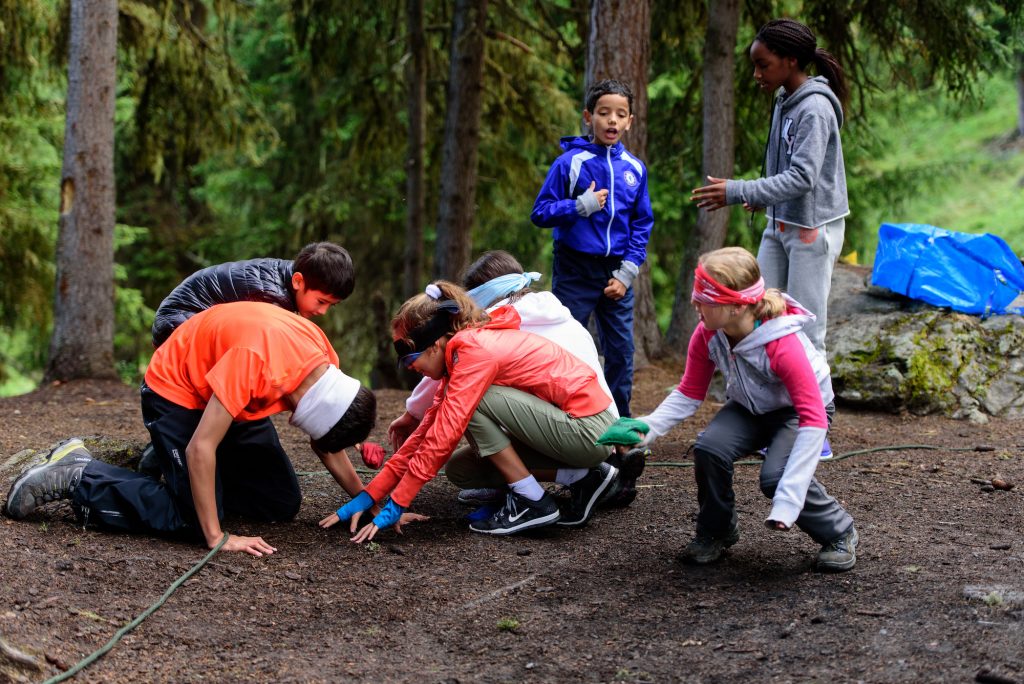
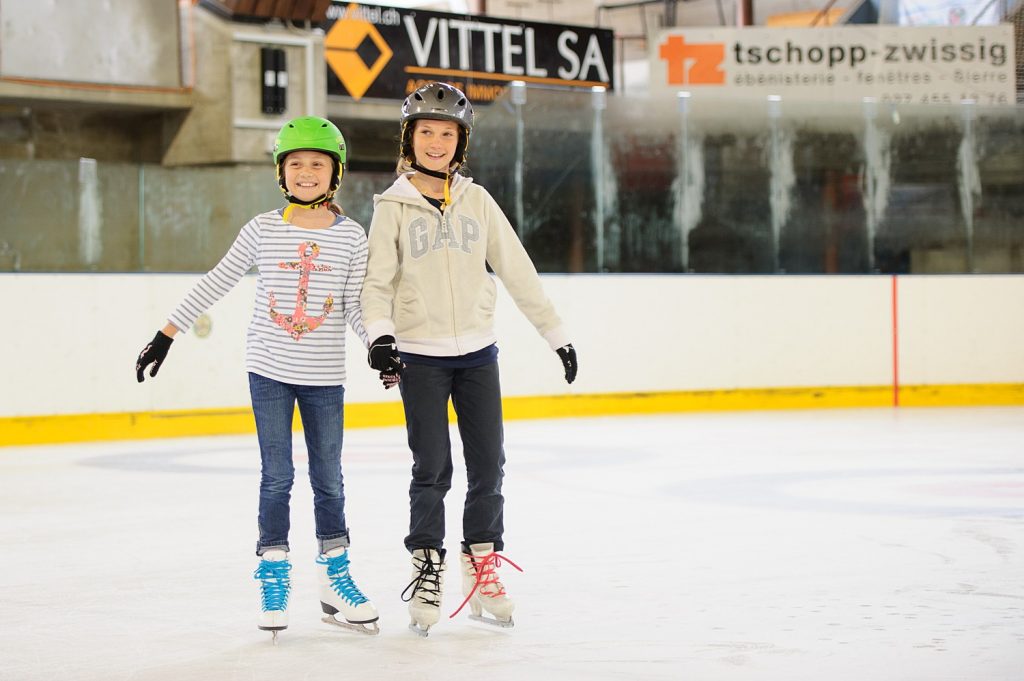
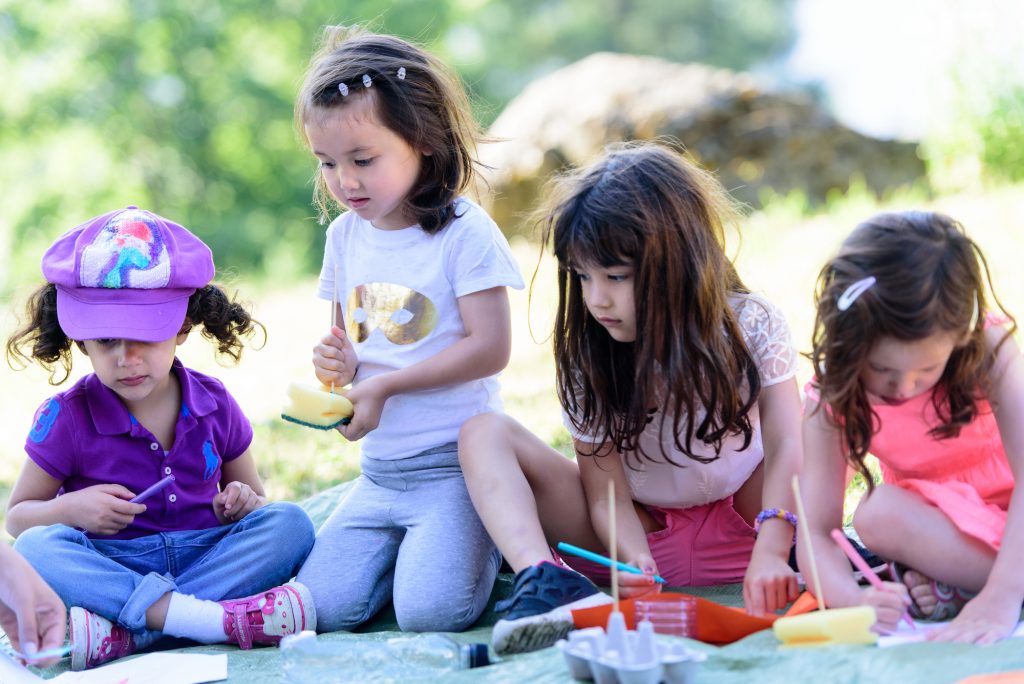
 You will need: a cucumber, fillings of choice: eg. slices of cheese, soft cheese, ham, slices of tomatoes
You will need: a cucumber, fillings of choice: eg. slices of cheese, soft cheese, ham, slices of tomatoes
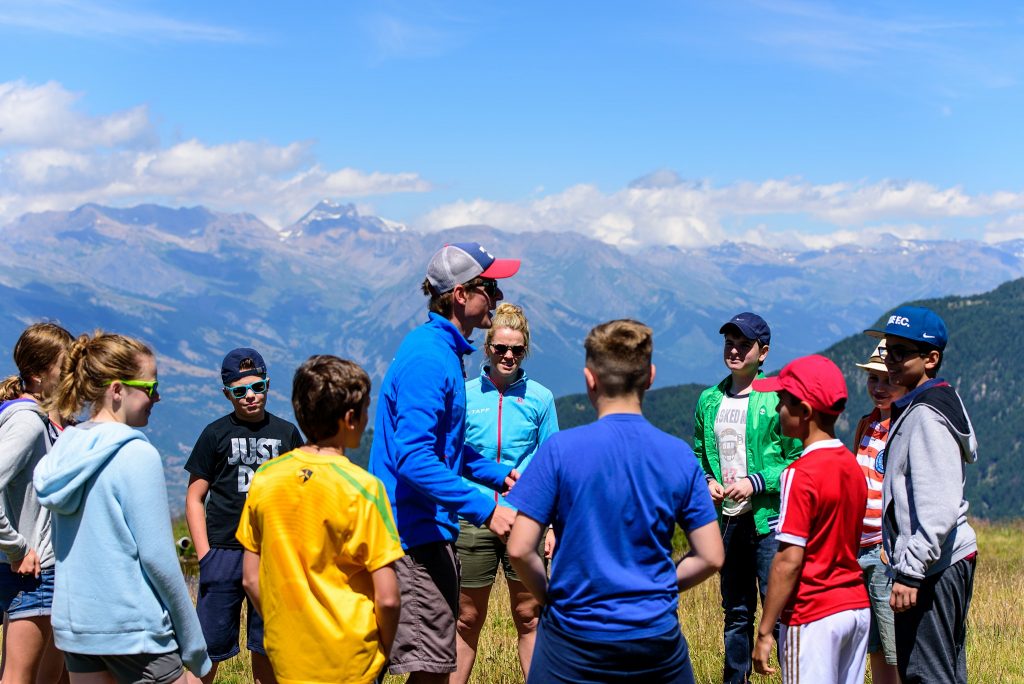
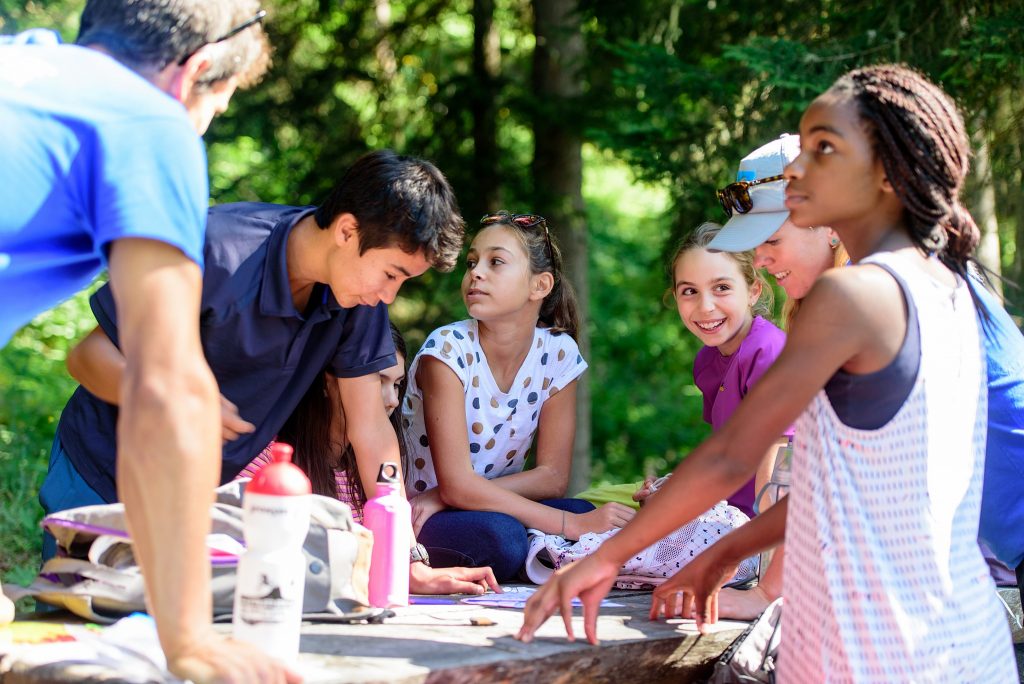
 Get kids involved in growing their own food!
If children have been involved in the planting and growing process, they are much more likely to want to eat their fruits and vegetables! Growing food yourself also means you can guarantee it is organic with no pesticides, and teaches children where different foods come from. Understanding food also helps children make healthier choices as they grow older and are able to choose their own meals at school and beyond.
Involve children in the food preparation process
We lead busy lives and many parents wont be a fan of this suggestion, but involving children in food preparation will mean they are far more likely to eat and enjoy their food as they are proud of what they have made. Letting them help in the supermarket shops and learn to read food labels also increases their awareness.
Get kids involved in growing their own food!
If children have been involved in the planting and growing process, they are much more likely to want to eat their fruits and vegetables! Growing food yourself also means you can guarantee it is organic with no pesticides, and teaches children where different foods come from. Understanding food also helps children make healthier choices as they grow older and are able to choose their own meals at school and beyond.
Involve children in the food preparation process
We lead busy lives and many parents wont be a fan of this suggestion, but involving children in food preparation will mean they are far more likely to eat and enjoy their food as they are proud of what they have made. Letting them help in the supermarket shops and learn to read food labels also increases their awareness.
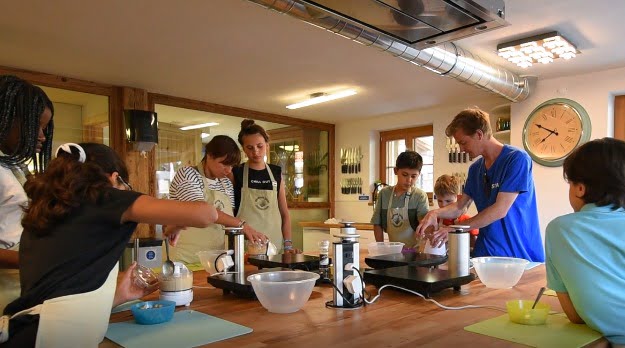 Eating together
Sitting down as a family can be important, even if schedules mean it cant happen every night. You are a role model for your child and eating healthy yourself will encourage them to do so and try more foods too. Importantly children should be at a table without electronic or other devices on, as it has been shown children are more likely to eat more unhealthy food in front of televisions.
Making food from scratch
The benefit of this is that you know exactly what is in your food; no excess sugar or salt can hide away, and chefs like Jamie Oliver are on a mission to prove that making food from scratch is easier than you think. Cooking in large batches when you have time can also make it easy to defrost a home-cooked meal on a busy night.
Eating together
Sitting down as a family can be important, even if schedules mean it cant happen every night. You are a role model for your child and eating healthy yourself will encourage them to do so and try more foods too. Importantly children should be at a table without electronic or other devices on, as it has been shown children are more likely to eat more unhealthy food in front of televisions.
Making food from scratch
The benefit of this is that you know exactly what is in your food; no excess sugar or salt can hide away, and chefs like Jamie Oliver are on a mission to prove that making food from scratch is easier than you think. Cooking in large batches when you have time can also make it easy to defrost a home-cooked meal on a busy night.
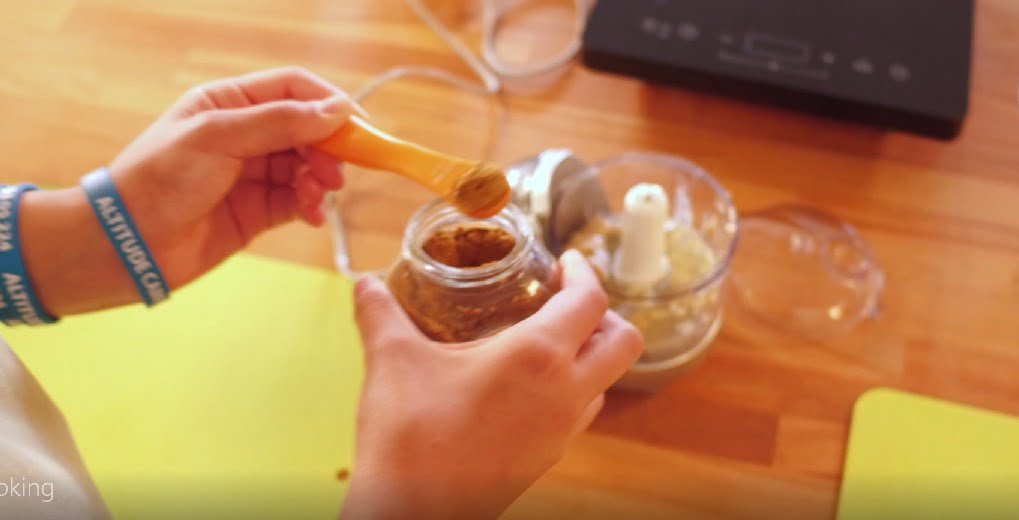 Limit takeaways, fast food and sweets
Advertising and the normalisation of junk food is the target of the food revolution; takeaways near schools mean this is often a choice for older children on their way to or from school. As a special treat this can be fine; not banning these entirely reduces the impulse to binge when able to!
Sugary drinks
For kids this can be a killer, but many sugary drinks can be addictive, especially drinks like coke and kids will actually crave it. Even concentrated fruit juices contain sugar.
Remember portion sizes
Limit a child’s plate, and never insist they clean their plate if they are full. Using food as a reward or bribe is also strongly recommended against.
At camp we have in house chefs making sure all food is prepared each day from fresh ingredients, and using locally sourced produce wherever possible. We also launched our new cookery classes in 2018 which were a great success! The kids loved making their own meals and it was a great way to educate them about where food is sourced, how to safely prepare it, and of course, what makes it healthy!
Want to know about the food we offer at our summer camps? Make sure you check out our
Limit takeaways, fast food and sweets
Advertising and the normalisation of junk food is the target of the food revolution; takeaways near schools mean this is often a choice for older children on their way to or from school. As a special treat this can be fine; not banning these entirely reduces the impulse to binge when able to!
Sugary drinks
For kids this can be a killer, but many sugary drinks can be addictive, especially drinks like coke and kids will actually crave it. Even concentrated fruit juices contain sugar.
Remember portion sizes
Limit a child’s plate, and never insist they clean their plate if they are full. Using food as a reward or bribe is also strongly recommended against.
At camp we have in house chefs making sure all food is prepared each day from fresh ingredients, and using locally sourced produce wherever possible. We also launched our new cookery classes in 2018 which were a great success! The kids loved making their own meals and it was a great way to educate them about where food is sourced, how to safely prepare it, and of course, what makes it healthy!
Want to know about the food we offer at our summer camps? Make sure you check out our 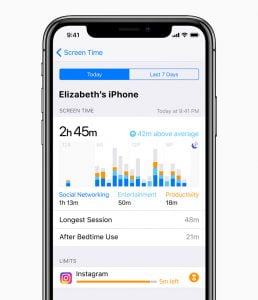
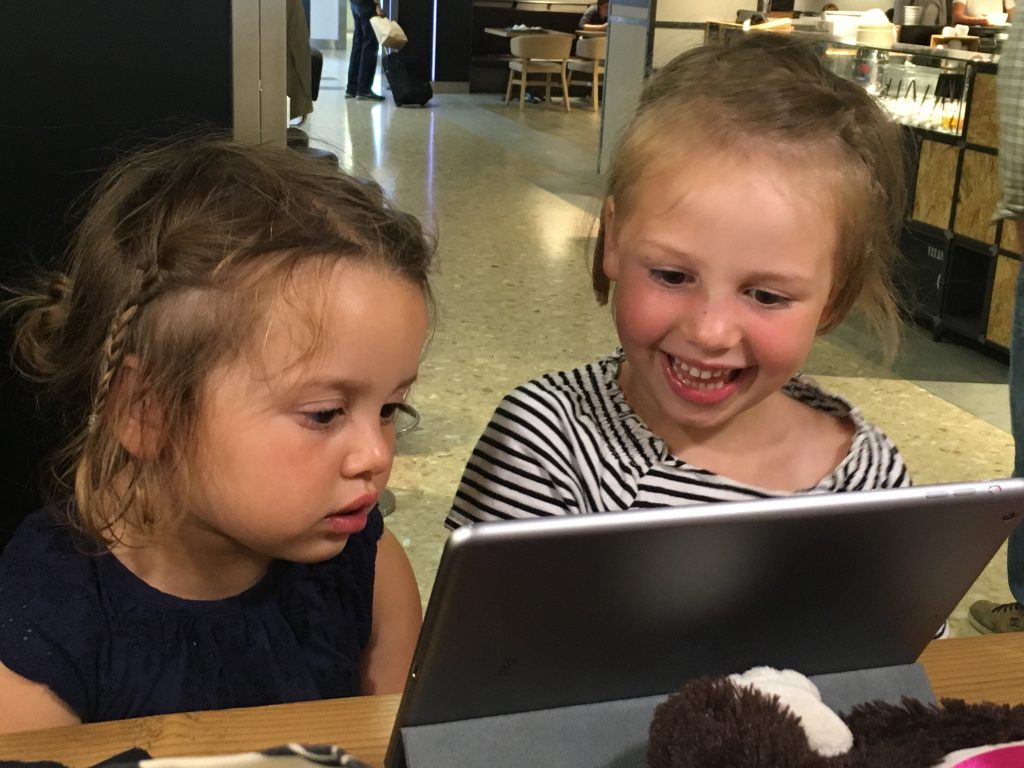 Broadly speaking children under 18 months – 2 years old are recommended to have no screen time at all with the exception of video-chat assisted by an adult. Even when children are not actively using or watching screens, if the television is on in the background, this negatively affects their play and they are likely to be less focused and will play for less time, and also the quality of parent or caregivers interaction with the children is reduced as they themselves are distracted by their phones or television. This can impact and reduce their ability to learn through play and from caregivers.
Essentially, for young children they have nothing to gain and lots to lose from screens. Even educational TV shows aimed at young children have not shown any significant benefits, and a study of children from 8-16 months have shown the more TV a young child watches, the less words they know compared to others in their age group exposed to less TV.
Pre-school age children
For pre-schoolers aged 2-5, current guidelines exist that approximately 1 hour of screen-time should be the limit. However a 2017 study published in the journal Child Development, researchers looked at the impact of screen-time in relation to children’s overall wellbeing. Findings suggested that it was how parents incorporated the media into children’s lives, how they set rules and if they were actively engaged in exploring digital screens with children that had more of an impact than simply the amount of time.
The message from this is therefore that limits are good, but also using screens together with your child is the best way to help them get the maximum benefits of good quality programmes, games and apps, removing the negative impacts of increased screen-time.
Screen-time and Tweens and Teens
Unlike younger children, and especially with the increase in mobile devices, limiting use of screens in older children can be difficult for parents, and monitoring that use, especially in teens, is even more difficult.
Tweens (aged 8-12) are spending an average of 4.5 hours a day, and Teens (13-18) an average of 6.5 hours a day with ‘screen’ media, excluding homework and school-time.
The majority of the time (78% among tweens and 64% among teens) they are using is still ‘passive’ or ‘interactive consumption’ – watching, listening, reading and playing with media content such as TV, videos and gaming.
Broadly speaking children under 18 months – 2 years old are recommended to have no screen time at all with the exception of video-chat assisted by an adult. Even when children are not actively using or watching screens, if the television is on in the background, this negatively affects their play and they are likely to be less focused and will play for less time, and also the quality of parent or caregivers interaction with the children is reduced as they themselves are distracted by their phones or television. This can impact and reduce their ability to learn through play and from caregivers.
Essentially, for young children they have nothing to gain and lots to lose from screens. Even educational TV shows aimed at young children have not shown any significant benefits, and a study of children from 8-16 months have shown the more TV a young child watches, the less words they know compared to others in their age group exposed to less TV.
Pre-school age children
For pre-schoolers aged 2-5, current guidelines exist that approximately 1 hour of screen-time should be the limit. However a 2017 study published in the journal Child Development, researchers looked at the impact of screen-time in relation to children’s overall wellbeing. Findings suggested that it was how parents incorporated the media into children’s lives, how they set rules and if they were actively engaged in exploring digital screens with children that had more of an impact than simply the amount of time.
The message from this is therefore that limits are good, but also using screens together with your child is the best way to help them get the maximum benefits of good quality programmes, games and apps, removing the negative impacts of increased screen-time.
Screen-time and Tweens and Teens
Unlike younger children, and especially with the increase in mobile devices, limiting use of screens in older children can be difficult for parents, and monitoring that use, especially in teens, is even more difficult.
Tweens (aged 8-12) are spending an average of 4.5 hours a day, and Teens (13-18) an average of 6.5 hours a day with ‘screen’ media, excluding homework and school-time.
The majority of the time (78% among tweens and 64% among teens) they are using is still ‘passive’ or ‘interactive consumption’ – watching, listening, reading and playing with media content such as TV, videos and gaming.